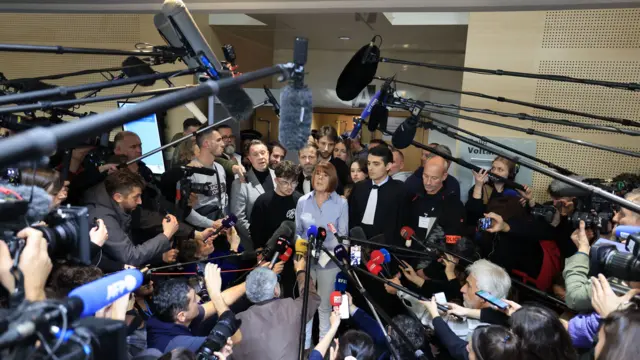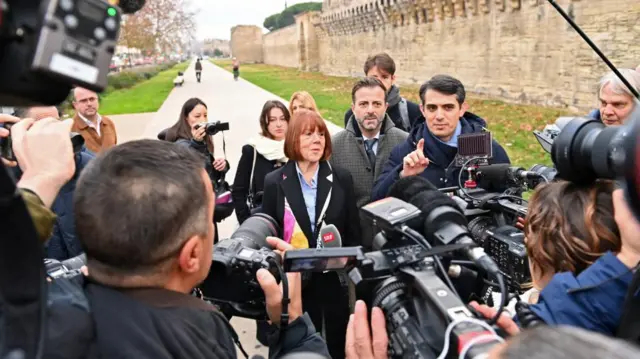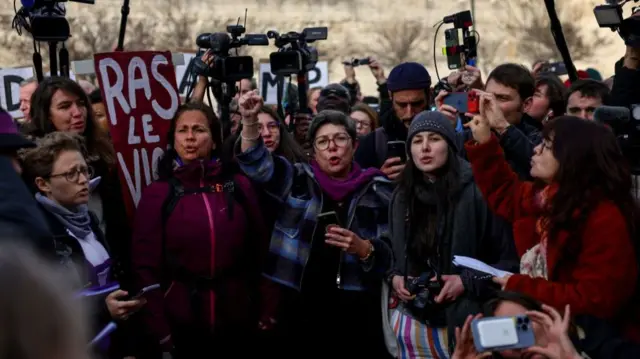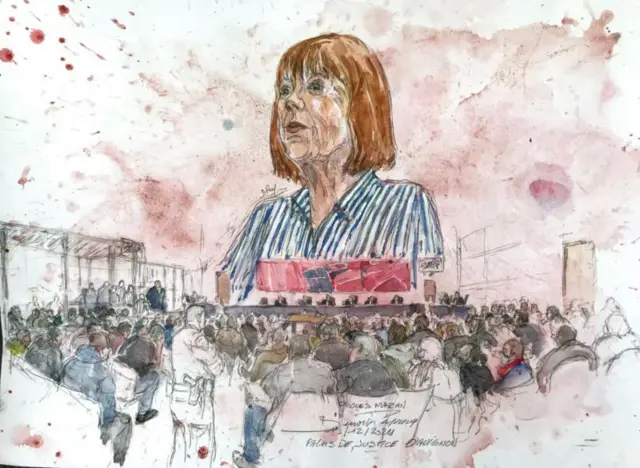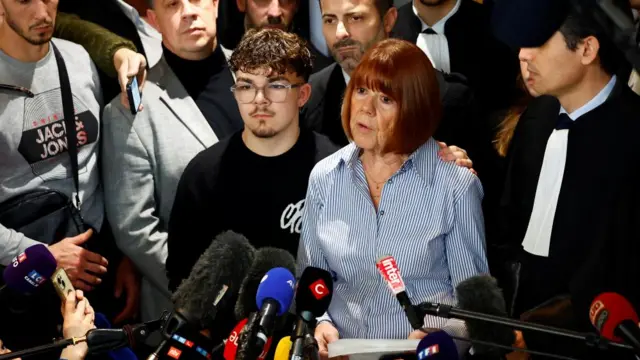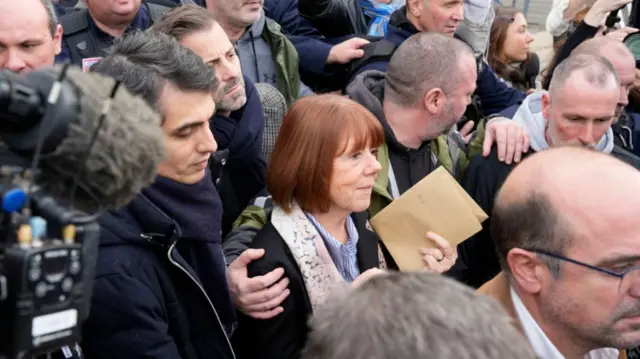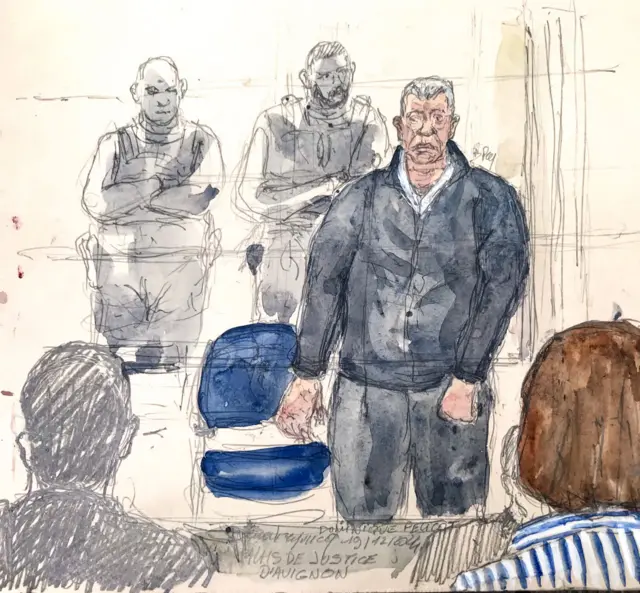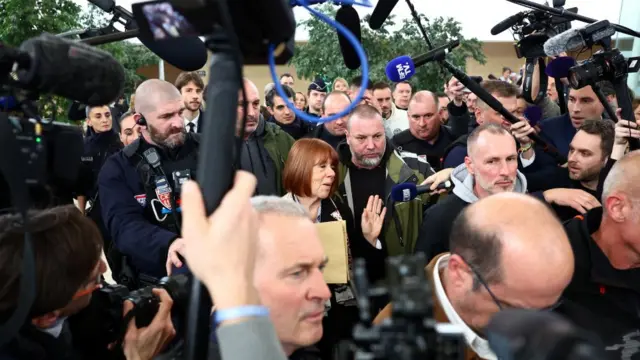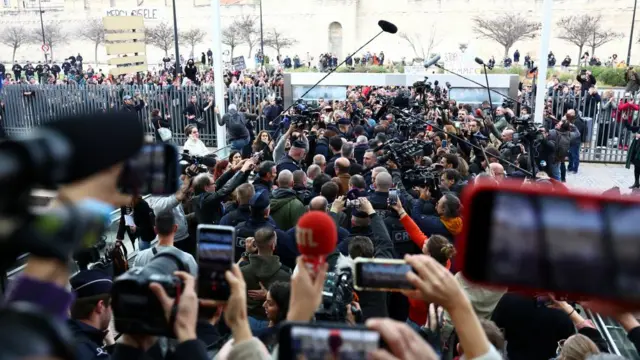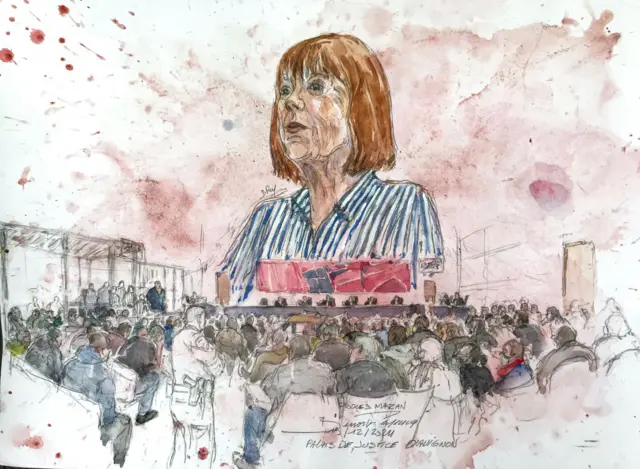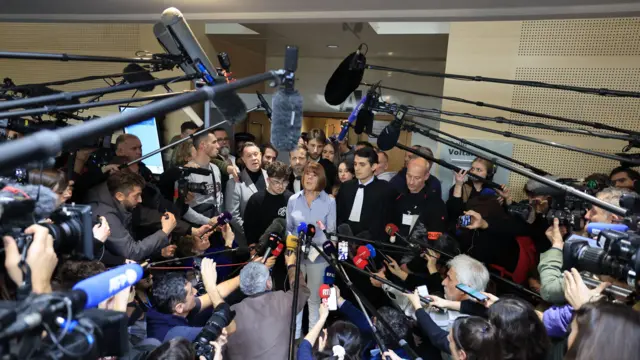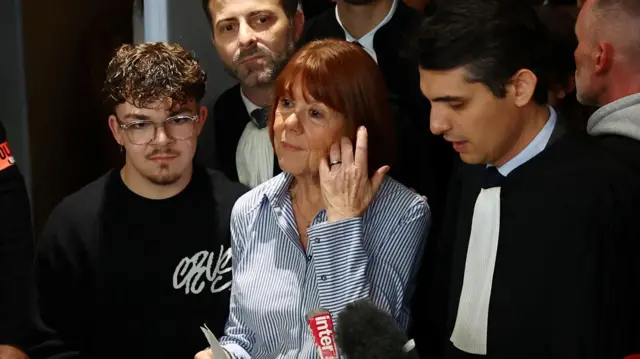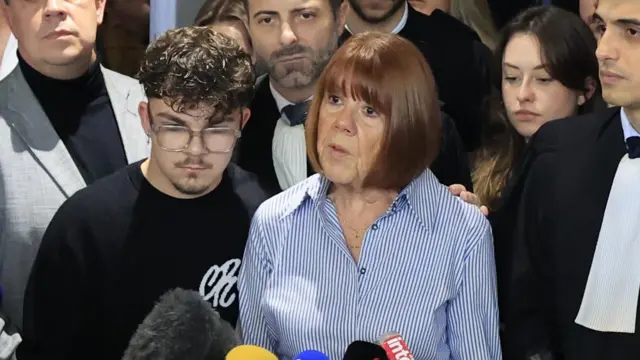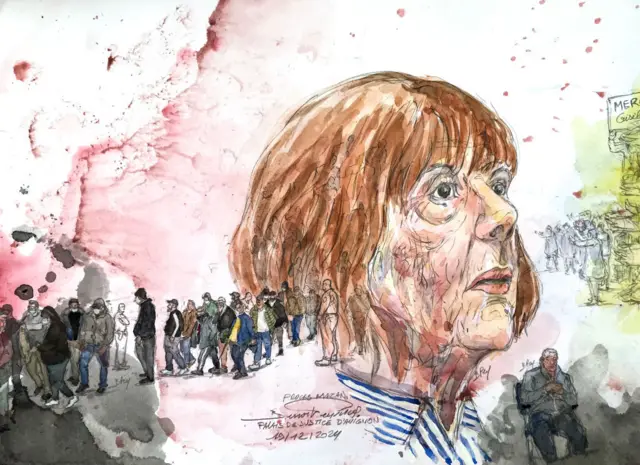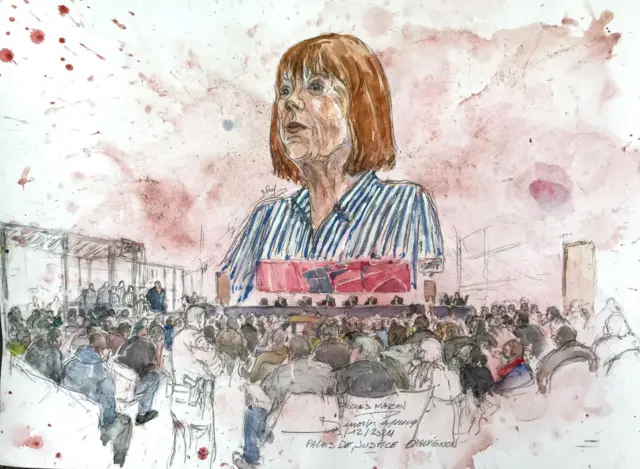Gisèle Pelicot entered trial an anonymous grandmother - and leaves it a feminist iconpublished at 14:23 GMT 19 December 2024
 Laura Gozzi
Laura Gozzi
Reporting from Avignon
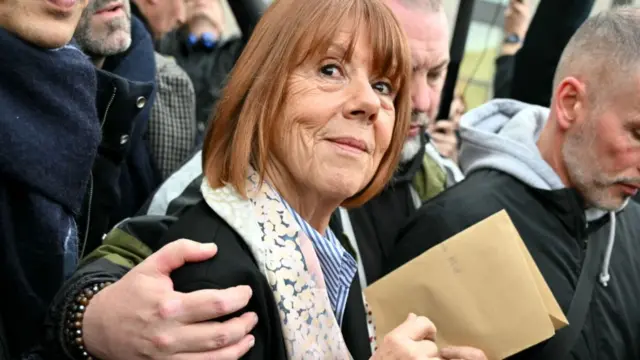 Image source, Getty Images
Image source, Getty ImagesAfter 16 weeks, the Pelicot trial is over.
This morning's session was shorter than many had anticipated, with the court president, Roger Arata, whizzing through the guilty verdicts he and four other judges handed down to the 51 defendants, and then separately spelling out the sentencing for each of them.
Before midday, this trial - which has captured people in France and beyond - was over.
Gisèle Pelicot was just an anonymous retired French grandmother when she first walked into the door of the Avignon tribunal. Few journalists were waiting for her then.
Today, when she descended the steps of the courthouse for the last time, she was a feminist icon.
Well over a hundred journalists followed her every move as she put her hand to her heart and smiled wordlessly, thanking the crowds of supporters who chanted out her name.
When her car drove off, supporters wiped off their tears. Their gratitude for this diminutive but extraordinary woman was palpable.
She will be remembered for a long time.
We're ending our live coverage now, but you can read our full write up here. This page was edited by Emily McGarvey and Emily Atkinson. The writers were Laura Gozzi in Avignon, and Ben Hatton, Alex Smith, Ian Aikman and Asya Robins in London.
- If you have been affected by the issues in this story, help and support is available via the BBC Action Line
